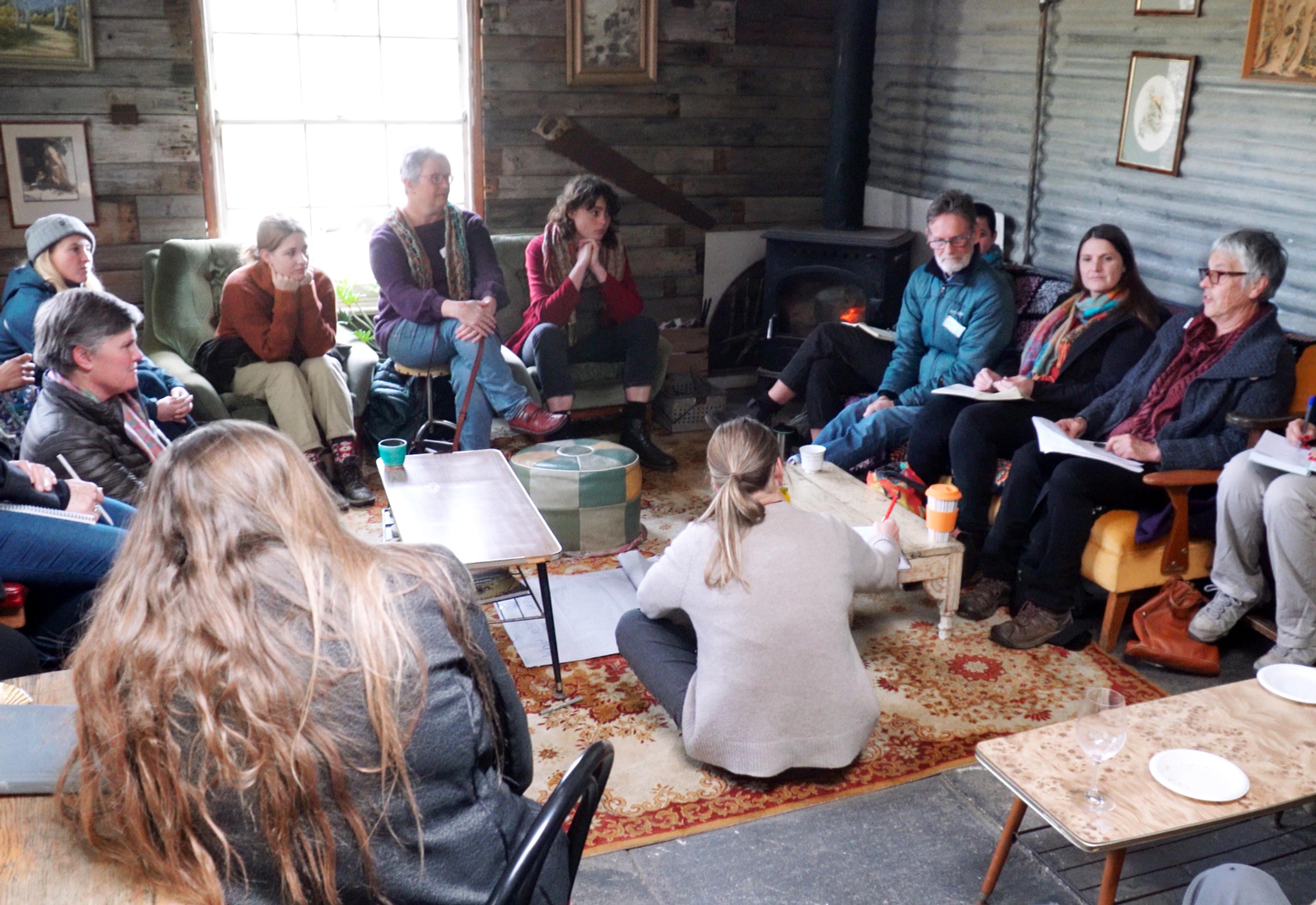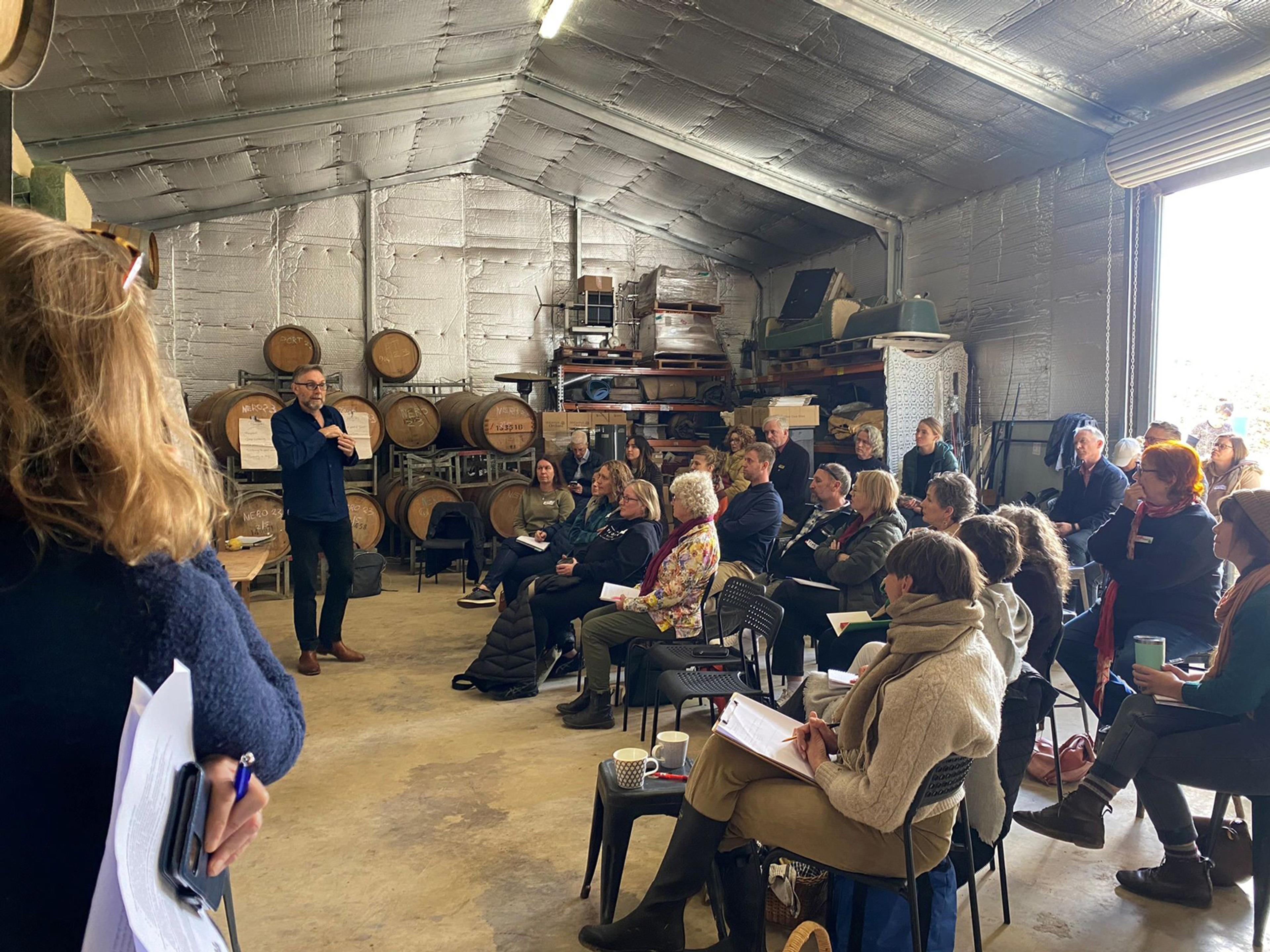Hills and Fleurieu Local Food Future Project
Grant amount: $52,000
Region: South Australia
Delivered by: The Food Embassy
Year funded: 2023
Project status: In progress
The Challenge
Long supply chains and global markets significantly increase local communities' vulnerability to climate and economic shocks, particularly in terms of food access. When food systems are heavily dependent on distant sources, disruptions such as extreme weather events, geopolitical tensions, or economic instability can lead to sudden shortages and price spikes. This dependency reduces the resilience of local food systems, making communities less able to cope with crises. Additionally, global supply chains often prioritise profitability and efficiency over sustainability and local needs, exacerbating the risks associated with external shocks. By contrast, shorter, localised supply chains can enhance food security, ensure fresher produce, and support local economies, thereby offering a buffer against global disruptions and fostering greater community resilience.
The Innovation
The Food Embassy is a social enterprise on the Fleurieu Peninsula in South Australia, founded in 2016. The organisation's vision is to support and strengthen local food communities that restore and nurture our connection to ourselves, our community and our planet. They do this through hosting events, workshops, training and mentoring community leaders to influence the food system. Key to the organisation's work is acknowledging First Nations people as the traditional first sustainable farmers of this land.
Since 2019, local government authorities in the Adelaide Hills and Fleurieu region of South Australia have been engaged in enabling a resilient food system in the face of climate impacts. In 2022, The Food Embassy alongside local government and other key stakeholders, facilitated a series of workshops to build a deeper, shared understanding of the issues and identify opportunities for collaborative action.
To realise the exciting prospects for this region, a collective of government, philanthropic and purpose-driven organisations and enterprises are working together to co-invest in the Hills and Fleurieu’s Food Future. Sustainable Table is funding the first step of this project - establishing a regional activator role. The key aim of this role will be to pilot a workable and viable model for a collaborative approach to strengthening the Fleurieu & Hills’ Food Future.
The project’s key objectives for the next 12 months are:
- To better understand the key gaps and opportunities for catalytic projects.
- Activate community engagement.
- Build the case for investment in this role and relevant catalytic regional food system projects.
- Identify the frameworks needed to facilitate the collaboration going forward.
Why did Sustainable Table fund this project?
Sustainable Table has committed to supporting The Food Embassy as a key partner in activating the Fleurieu Peninsula’s regional food system. Over the past year, we have worked closely with food system leaders in Kaurna Yarta, South Australia, building trust and relationships, and identifying opportunities to strengthen local food networks. Through deep listening and three visits to the region, we’ve identified The Food Embassy as a well-connected yet under-resourced social enterprise leading an unprecedented activation of the local food system.
The organisation has demonstrated a proven track record in facilitating, coordinating, and delivering innovative food system projects. Their leadership has garnered cross-sector support for a regional food system collaboration, which includes a proposed activator role, a catalytic project fund, and a regional food plan. However, to fully realise this vision, dedicated investment in organisational capacity and infrastructure is critical.
Please consider donating today to help us support more projects like this and regenerate Australian food and farming.

